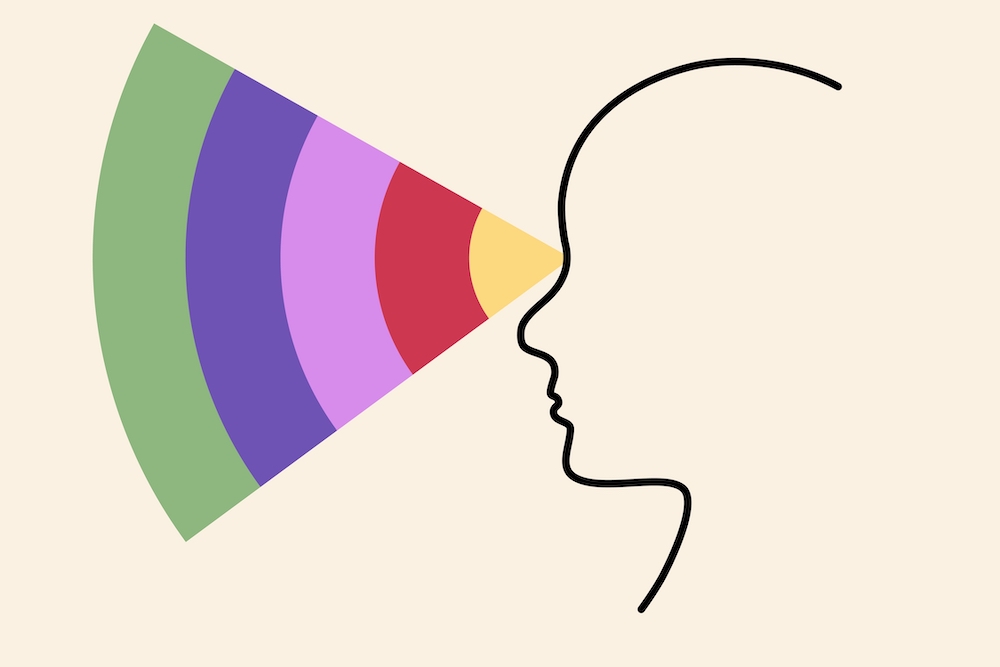We make sense of the world around us primarily through our experience – what we’ve been exposed to, our interactions, our perceptions and the stories we hear.
In other words, we are biased by what’s available to us – what Daniel Kahneman and Amos Tversky call the availability heuristic.
This bias creates a mental shortcut that makes it possible for us to solve problems quickly and simply.
These shortcuts are everywhere in our thinking and even in our perceptions. And most of the time, they work just fine. They save time and energy, which is a tremendous advantage.
But when dealing with things that are more complex or abstract or that involve large numbers of people or large amounts of information, this general sense is not enough.
That means decisions on your money and investments, for instance, are going to require you to think a little differently…
Learning Through Experience
We can see how these shortcuts function in our perceptions when we’re faced with an optical illusion.
We think we see the world exactly as it is – photons bouncing off objects in the world and hitting light receptors on our retinas.
But that’s not all we see.
Because we take the information from those light receptors and integrate it with what we expect to see – and create an image of the world that makes sense to us.
Yes, part of our perception is created by our own minds.
That’s why an optical illusion can trick us. For example, without analyzing it, take your best guess at reading this word: 3xp3r1ence.
As you can see, some of the letters are not as they should be. So what we see is nonsense.
But through your perception, your mind likely made sense of them and came up with the word experience. Just by using the context of all the other letters and your history of seeing the accurately spelled word many times.
We do the same thing with ideas, information and events. We take whatever information we have and create a story that makes sense of it all – and we regard that story as truth. And most of the time, what we perceive is close enough to reality that it works. We come to trust our interpretations, because in our day-to-day life we’re continuously getting feedback from the world on whether our perceptions, our judgments and our ideas are good enough.
When we trip on something that we weren’t expecting – like thinking that you heard a crying child when it was really just a cat – we take note, adapt and learn for next time, and carry on.
The news is another great example of this. If we watch television news, we’re seeing the worst things happening around the world.
We’re seeing the crime, suffering and awful behavior of a very small percentage of the population.
But it’s framed in such a way that it feels like a high percentage of the population. And since that’s the information available to us, that’s how the world seems to be.
(This is one reason I recommend not watching television news at all. It’s much better to read the news, since doing so is less intense on our nervous system and a little more abstract.)
If you watch thrillers, you’ve probably had the experience of feeling, after watching one, that the world is a little more dangerous than it was before you watched it.
If you work in a happy environment, you might feel like the world in general is a happier place than it objectively is.
If you’ve heard a couple of stories about plane wrecks, you might be inclined to drive instead of fly for your next trip (even though driving is more dangerous).
When stories about natural disasters are in the news, we can get the impression that those are increasing, even if statistically they are not.
And when it comes to money, the availability heuristic can lead us to make poor decisions that can cost us dearly.
Don’t Trust Everything You Read
If it seems that everyone is talking about how great a particular stock is, that information will pervade your senses – it will seem like the payoff for buying that stock is a sure thing.
If all that you’re reading tells you to sell everything and buy gold, that will seem like a solid strategy to you.
When we’ve been successful in the past, that success can skew our judgment because when all we’ve known is success, failure is not on our radar and the experience of it isn’t available to us. Thefore we become overconfident and dismissive of warning signs – until we’re hit with a loss, seemingly from out of nowhere.
The antidote to this bias is to recognize that it exists and that it affects us all.
The benefits of doing this, particularly with regard to your money and investment decisions, are significant. And that’s where the fun and excitement of these decisions live.
